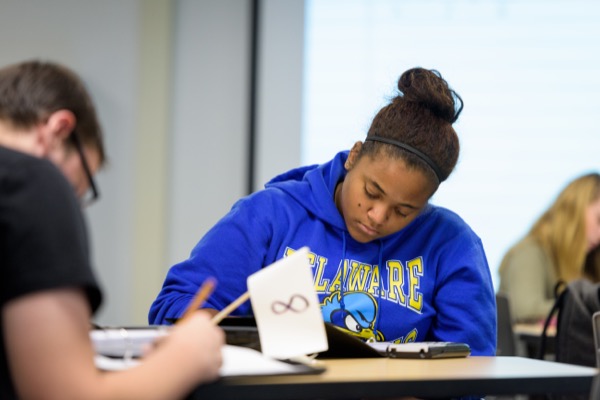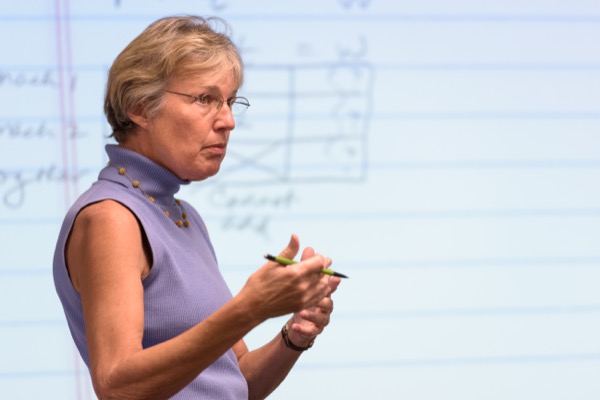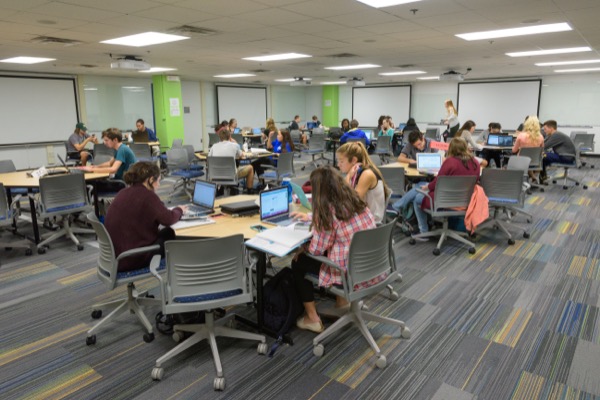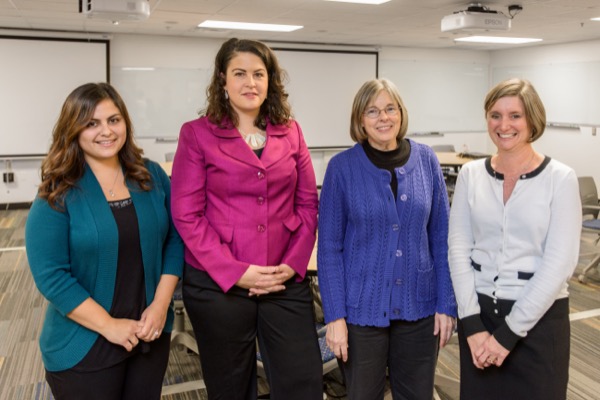

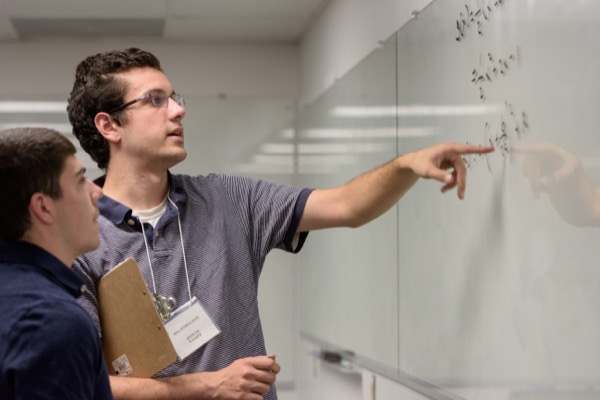
Do the math
New math learning lab offers one-stop shop for student success
2:21 p.m., Nov. 12, 2015--If there’s a University of Delaware department that really knows how to rely on numbers, it’s Mathematical Sciences, and faculty members there have been seeing some worrisome data — a large proportion of freshmen failing or dropping their beginning math courses and, too often, difficulties with math causing interested students to abandon STEM classes altogether.
“We know that, nationally, a large number of students enter college with an interest in STEM [science, technology, engineering and math], but those numbers drop off,” said John Pelesko, professor of mathematical sciences and interim associate dean for the natural sciences in the College of Arts and Sciences. “A lot of that attrition is due to negative experiences in college math classes, so we decided to address it. We realized that we can’t fix this problem by doing the same things that got us here.”
Campus Stories
From graduates, faculty
Doctoral hooding
The department and the college came up with what they think is a solution. They established a dedicated “one-stop shop” to provide innovative teaching, specialized classroom space and tutoring, advising and test-taking services for students taking basic, foundational mathematics courses.
The Mathematical Sciences Learning Laboratory (MSSL) occupies a former physical therapy clinic in McKinly Lab. It remodeled the area and introduced its services last spring and began operating on a full schedule this semester.
Its large classroom is modeled on the instructional space in the Harker Interdisciplinary Science and Engineering Laboratory, with movable desks and chairs to encourage small-group problem-solving and embedded technology to allow students and faculty to easily share and discuss their work.
Two foundational mathematics courses are taught there, and four faculty members who teach those courses have moved their offices to the space as well. An adjoining room is used for testing, with the goal of easing stress on students who no longer have to attend class, take tests and meet with professors or advisers in three or four different buildings.
Students say they like the convenience, said Dawn Berk, assistant professor of mathematical sciences and founding director of MSLL, and she noted that interactive, problem-based learning is an effective teaching method. But, she said, by far the most popular service is the drop-in tutoring offered in MSLL when formal classes aren’t using the space.
“The first week we offered tutoring, students were lined up in the hallway waiting for the doors to open,” Berk said. “We ran out of tables and chairs, and they were sitting on the floor. The other instructors and I came out to help the tutors before they got overwhelmed.”
Tutoring hours have since expanded, stretching well into the evening and now also offered on Sundays. About 500 students a week are using the service, which is available for the two courses taught at MSLL and for five others, up to and including introductory calculus.
Next fall, the hope is to add a second room in McKinly to use for class meetings, freeing up the current MSLL space for full-time tutoring.
“When I was in graduate school, I heard about introductory math classes being used to ‘weed out’ students who failed them,” Berk said. “That’s a very different situation from today at the University of Delaware. We want students to have a good experience with college math; if they work hard, we will help them be successful.”
Although MSLL is new, she said the rate of students getting D’s or F’s or dropping basic math classes has already declined.
Students using the tutoring services recently said the help from upperclassmen who are majoring in math has enabled them to become more comfortable with classroom material. The interactive work and flexible hours have been a plus, they said.
For Amy Fligor, serving as a tutor has benefited her own studies in math education. “Teaching students from different backgrounds and learning levels has helped me understand how to approach teaching from different perspectives that ensure they are understanding me,” she said.
Faculty members expect to find the same benefits, said Louis Rossi, professor and chairperson of mathematical sciences. By dedicating resources to students who might struggle with math, the department is developing new and effective approaches to teaching those students, he said.
“This represents the deepest and most coordinated commitment to a group of students we’ve ever made,” he said. “We think it’s empowering for students. We think it will provide them not just with skills they need but also with a positive attitude toward math.”
Article by Ann Manser and Juwan Montalvo
Photos by Evan Krape





